January

As the New Year brought with it new hopes for an end to the COVID-19 pandemic, Australians were being urged to consider the wider context of Australia’s privileged position.
In a commentary for the Conversation that, like the Roman God Janus, reflected on the year just gone, and looked ahead at the year to come, Professor Brendan Crabb and Professor Mike Toole wrote: “Relative to most Western countries … we live in a largely COVID-free oasis.”
“This puts us in an incredibly good position to carefully exit from the COVID crisis and manage a steady return to nationwide normality, without the suffering seen in other nations. But we have 12 months or so to go.”
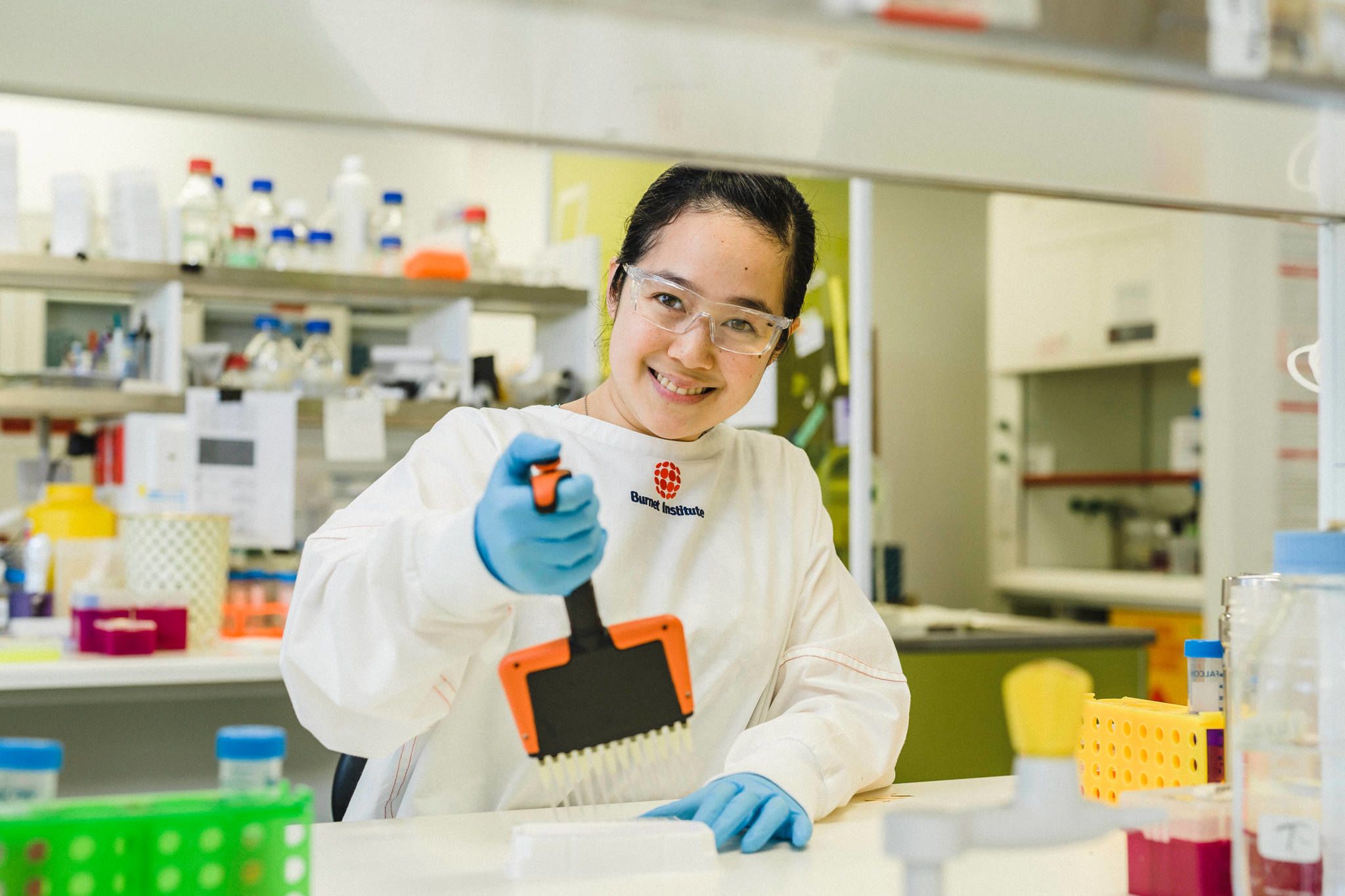
Innovative new research by Burnet Institute and QIMR-Berghofer scientists linked the activation of immune cells to the induction of protective antibodies against malaria.
It’s expected the study, led by Burnet Senior Postdoctoral Research Scientist, Dr Jo-Anne Chan and published in the journal Cell Reports Medicine, will help to inform the development of effective malaria vaccines that target these immune cells to boost the levels of protective antibodies.
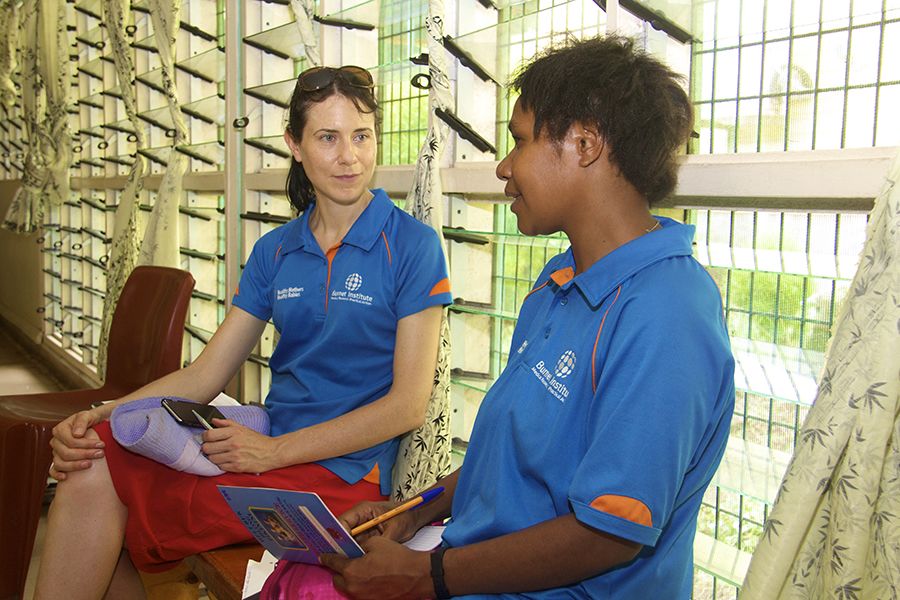
Very high rates of unintended pregnancy and very low use of modern family planning methods among women in Papua New Guinea were identified in a major Burnet-led study, published in the journal Scientific Reports.
Study lead author Dr Liz Peach said the findings highlight the urgent need for targeted services and strategies to improve family planning knowledge, uptake and access, and male partner involvement to reduce unintended pregnancies and their complications.
February
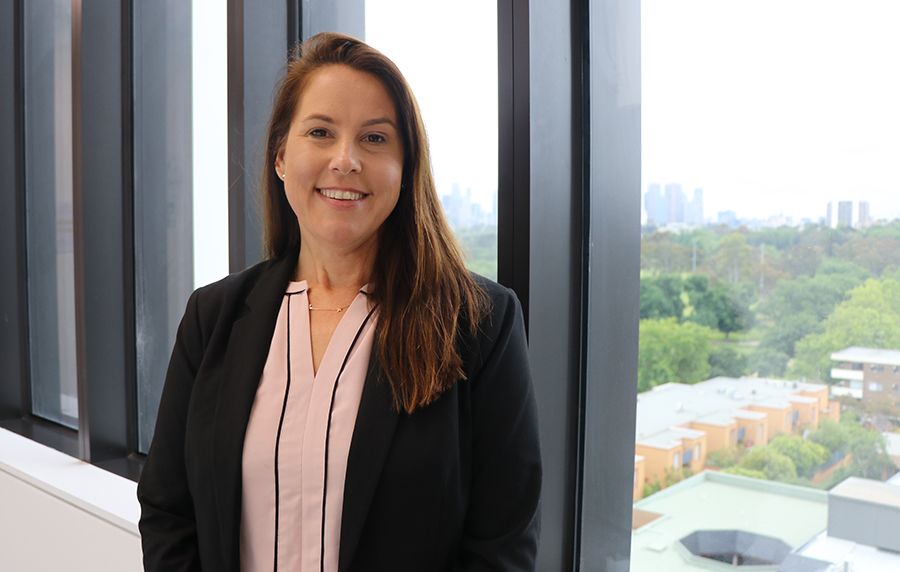
Biotech executive Jennifer Barnes joined Burnet Institute in February as the inaugural Director of the Burnet Diagnostics Initiative (BDI).
“Before COVID-19, diagnostics was an undervalued science. The world now appreciates the need for fast, affordable diagnostic tests, and Burnet Institute is well placed to capitalise on this realisation,” Ms Barnes said.
BDI brings together a multidisciplinary team that builds on Burnet’s capacity for engagement in the point-of-care In Vitro Diagnostics (IVD) industry and proven track record in diagnostic development focused on unmet health needs.
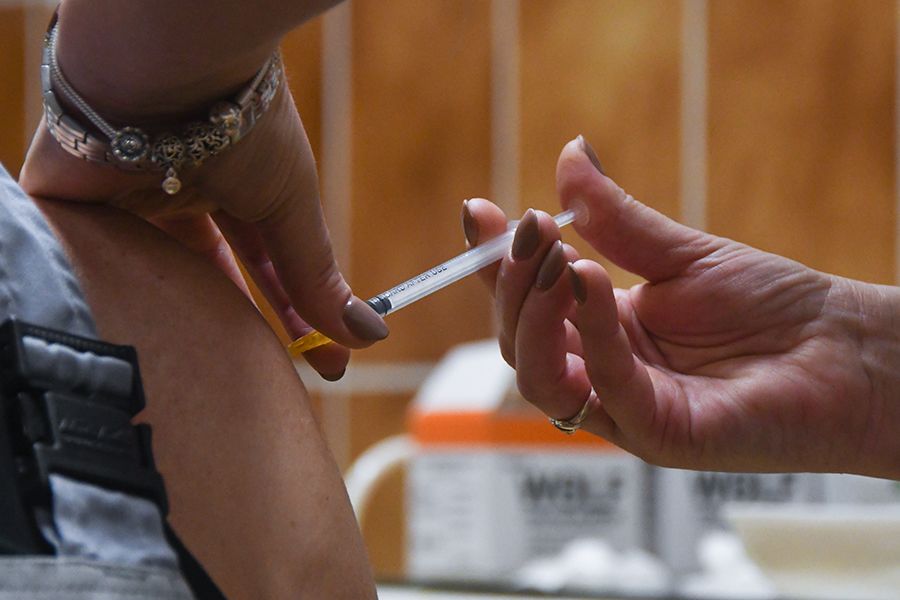
Also in February, Professor Mike Toole welcomed the commencement of the COVID-19 vaccination rollout for Australia’s priority groups as an important initiative to enable people to take action to protect themselves, their families and the community from the global pandemic.
Professor Toole, Technical Advisor for Burnet’s Know-C19 Hub, said the robust review processes of the Therapeutic Goods Administration meant Australians could be confident that approved vaccines would meet strict safety and efficacy criteria.
“It’s an exciting time – I don’t think many of us would have believed 12 months ago that we would be rolling out the first of a number of vaccines.”
March
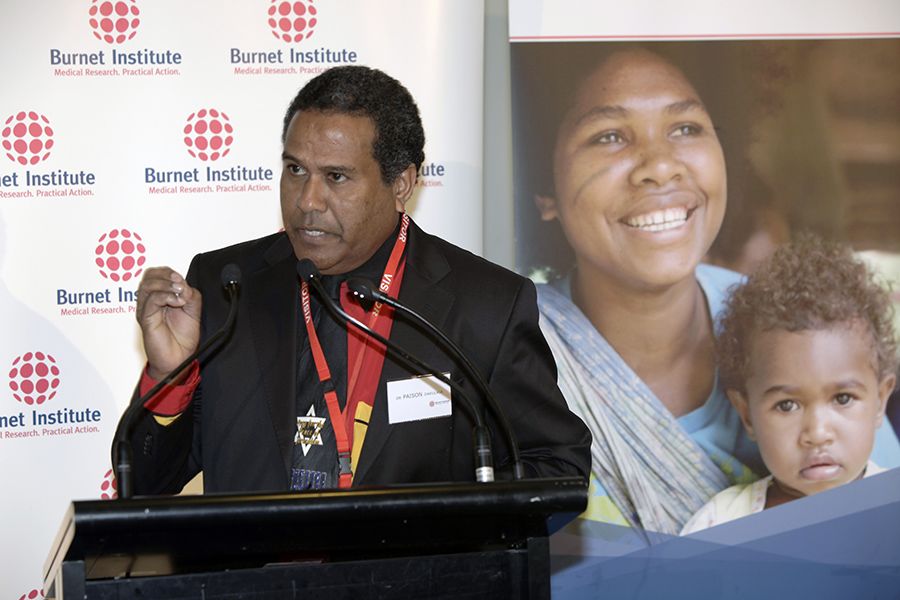
The Burnet community was deeply saddened in March by the death of Dr Paison Dakulala, one of Papua New Guinea’s leading health authorities and campaigner for those most at risk.
Dr Dakulala played an active role in improving the health of the people of PNG, and was an inspirational leader and teacher for many healthcare workers domestically and internationally.
Dr Dakulala initiated and chaired the national emergency response task force for drug-resistant TB in 2014, and more recently provided support and advice to the Government of PNG as the deputy head of the National Pandemic Response to COVID-19.
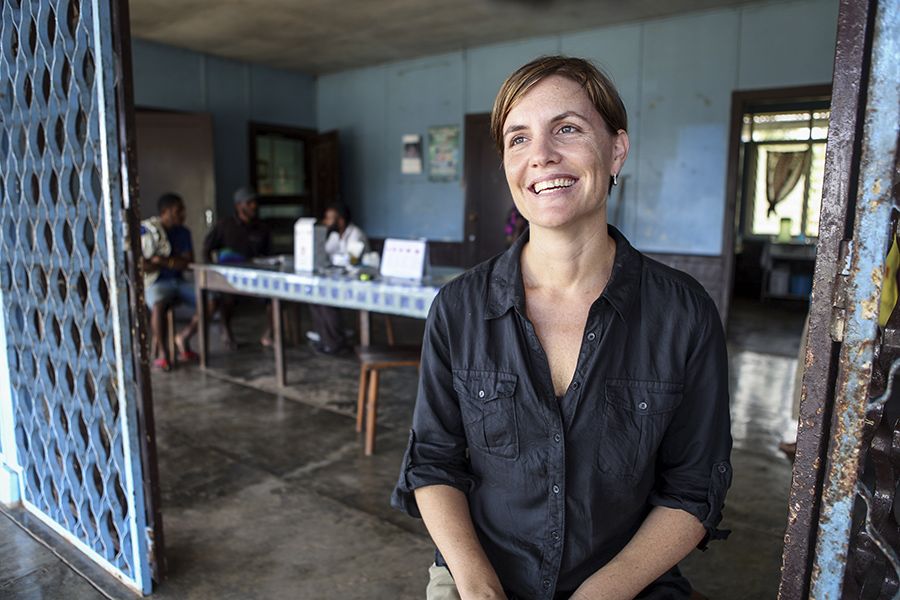
Professor Leanne Robinson
Professor Leanne Robinson
On International Women’s Day, Burnet Institute recognised the important work done by our women in STEM – Science, Technology, Engineering and Mathematics.
Burnet Gender Equity, Diversity and Inclusion (GEDI) Council chair, Professor Caroline Homer said the Institute was proud to have women from diverse backgrounds working across all three disciplines: life sciences, public health and international development.
“At Burnet, we are committed to gender equity and ensuring that women scientists are enabled, supported and celebrated.”
Professor Leanne Robinson was commended for her leadership of the STRIVE PNG Project to strengthen surveillance and control of vector-borne diseases in PNG and the wider Pacific region.
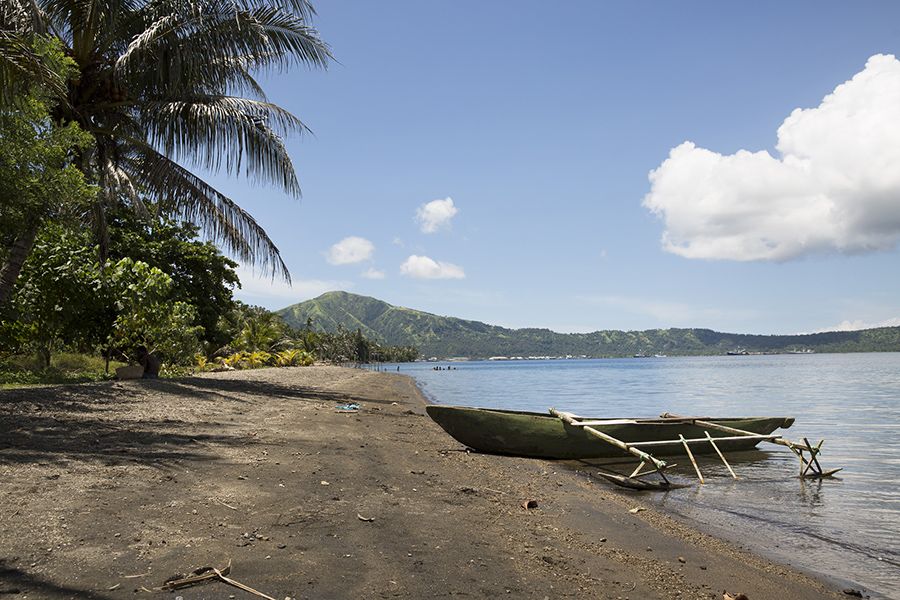
The Australian Government’s announcement of urgent COVID-19 support measures for Papua New Guinea (PNG) was welcomed by Burnet Institute Deputy Director, Health Security, Dr Suman Majumdar.
The support included 8,000 doses of Australia’s own domestic vaccine supplies and the pledge for one million doses of AstraZeneca vaccine to be distributed to PNG by the end of 2021.
The announcement followed the call for urgent action to address PNG’s COVID crisis by Professor Brendan Crabb and Professor Leanne Robinson in a commentary published in The Conversation.
“Stepping up to urgently support our neighbours in need, ensuring the stability of our region and protecting the health of Australians – this is us at our best.”
Professor Brendan Crabb AC
Burnet Institute, Director and CEO
17 March 2021
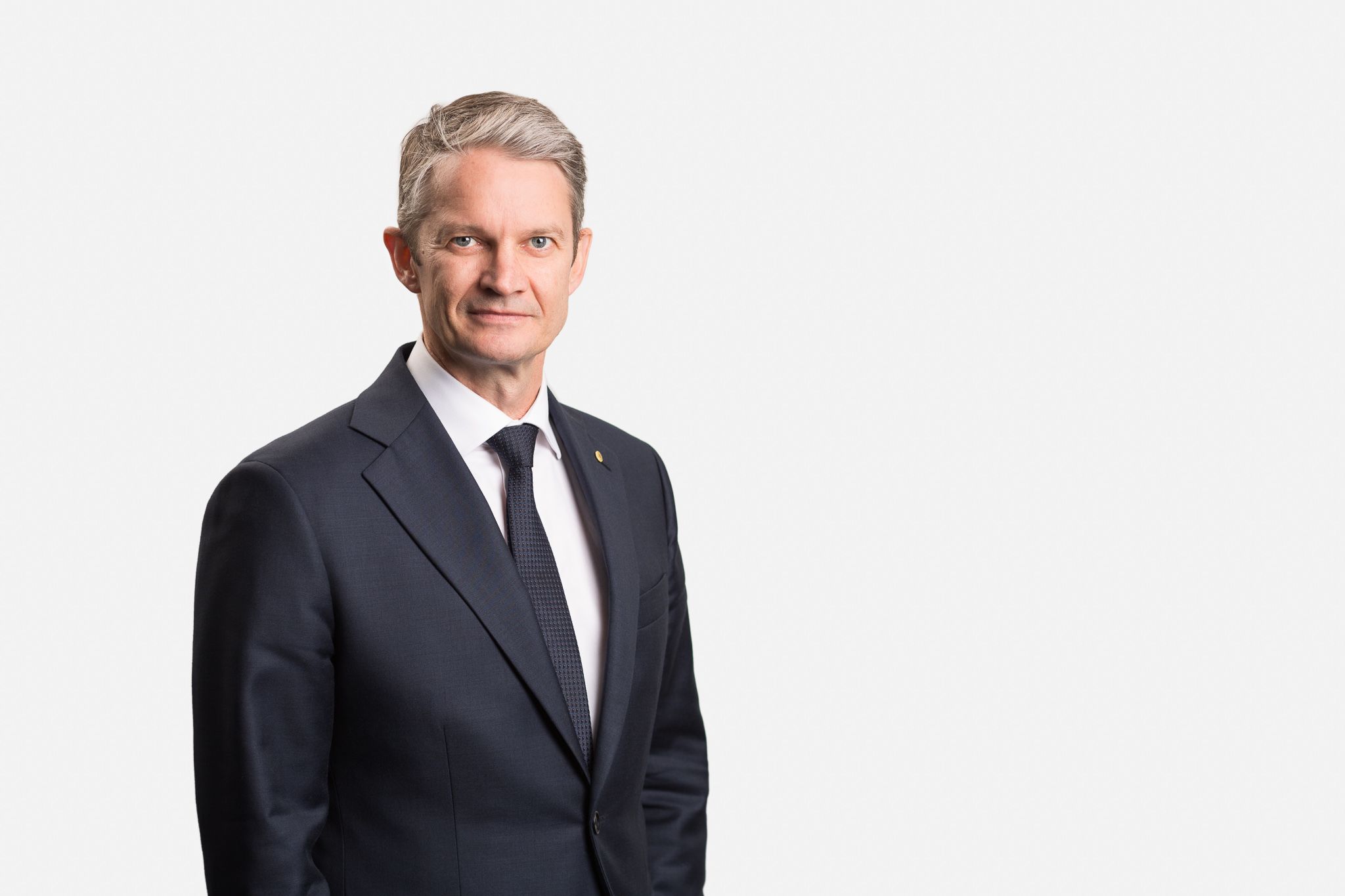
April
Dr Anthony Fauci’s words of COVID warning for Australia. America’s top #COVID-19 advisor praised Australia’s response to the pandemic but warned that no country was safe until the virus was, a view shared by @CrabbBrendan @BurnetInstitute. https://t.co/0GQyMK4FIE
— Burnet Institute (@BurnetInstitute) April 15, 2021
Burnet Director and CEO Professor Brendan Crabb told ABC Radio’s PM program that vaccine rollouts should focus on the Asia-Pacific region to prevent the virus spreading rapidly overseas and threatening Australia’s COVID-19 vaccine programs.
It was a view shared by America’s top COVID adviser, Dr Anthony Fauci while presenting the University of NSW’s inaugural David Cooper Lecture, and came as the US administered a record 4.6 million vaccines in a single day.
Professor Crabb said that while there were problems with Australia’s COVID-19 vaccination rollout there was no immediate health threat domestically, and Australia had a responsibility to assist other countries to suppress the virus.
“The frequency of variants that can escape immunity and escape the current vaccines is very high. At the moment COVID in the world is increasing to nearly record levels. Variants are a major threat to our vaccine program.”
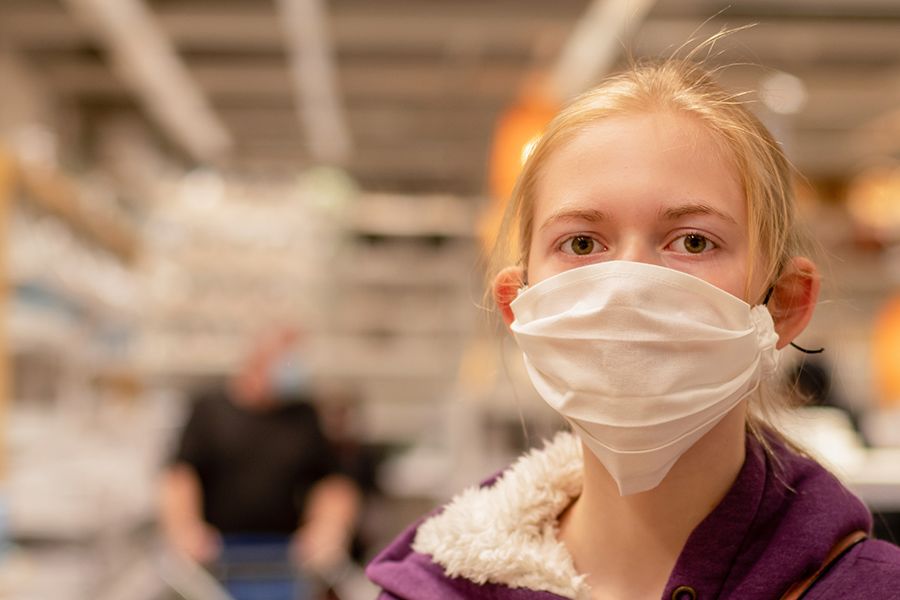
Shame and stigma are preventing young Australians and key community groups from deciding to be tested for COVID-19 in situations where testing is warranted, new collaborative research led by Burnet Institute found.
Ninety-three per cent of participants in the Optimise Study reported symptoms but did not test on at least one occasion during follow-up. “Rear, anxiety and stigma played a prominent role in their decision to get a test and were identified as common barriers for very different groups,” Dr Alisa Pedrana, Burnet Senior Research Fellow, said.
A new #malaria vaccine by @UniofOxford has proved 77% effective in early trials and is a potential major breakthrough against a disease which kills 400,000 ppl annually, mainly children. @BeesonMalaria @BurnetMalaria @ACFID https://t.co/93SVazTfyc
— Burnet Institute (@BurnetInstitute) April 23, 2021
Professor Crabb described a new malaria vaccine produced by Oxford University as a potential game-changer.
The vaccine proved 77 per cent effective in early trials against a disease that kills 400,000 people annually, mainly children.
“The holy grail is a vaccine that’s cheap and effective and highly available, and we just might have it. It’s a very big discovery announced by Oxford,” Professor Crabb told ABC Radio Sydney.
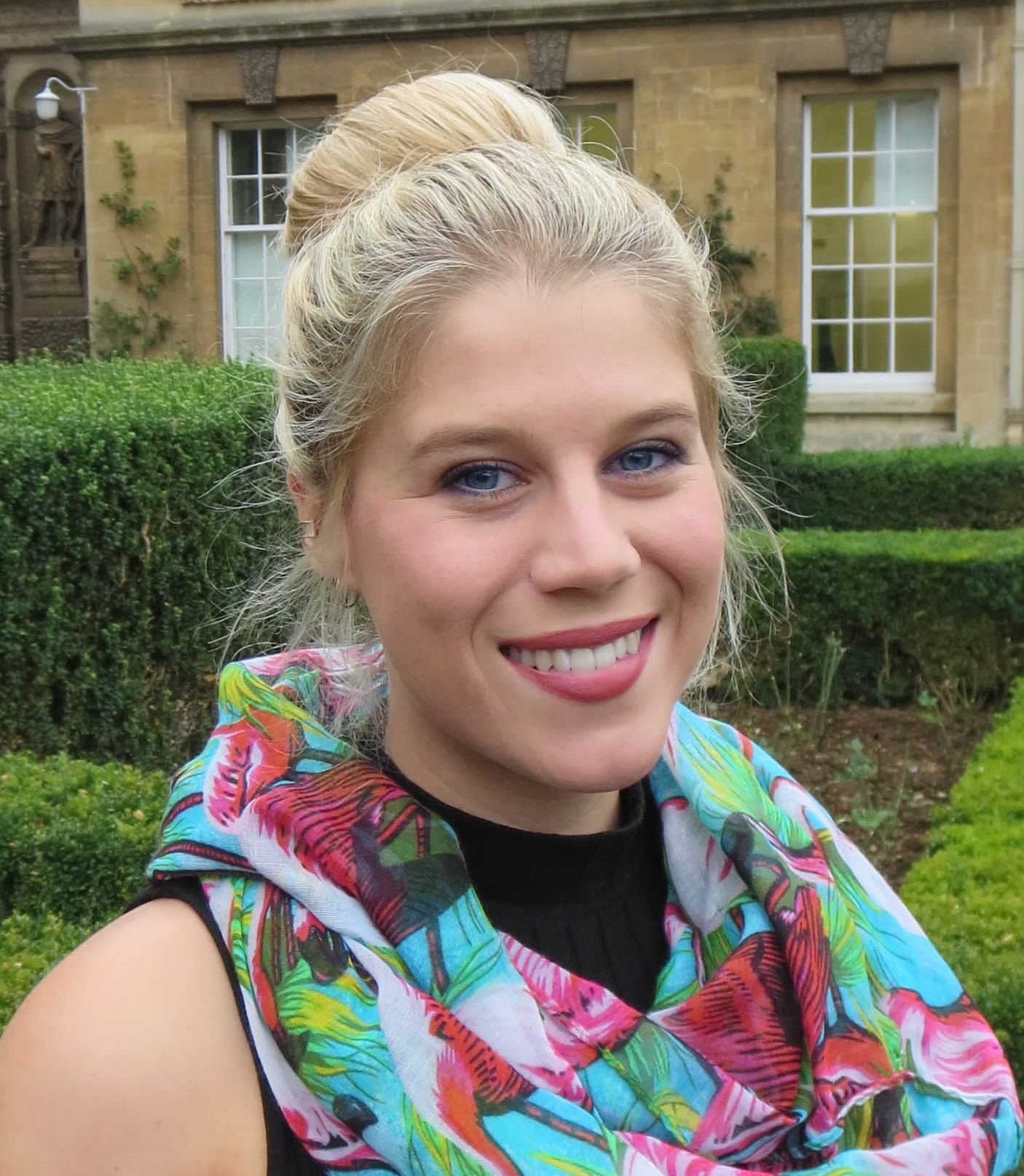
Burnet Institute’s Dr Julie Hennegan was part of a collaboration of experts who developed a definition of menstrual health to provide clarity, a common language, and unity in support of menstrual needs globally.
The definition fills a significant gap in research, policy and practice across a broad range of disciplines including women’s health, human rights, gender studies, education, water, sanitation and hygiene (WASH), and sexual and reproductive health.
Published in the journal, Sexual and Reproductive Health Matters, menstrual health is defined as “a state of complete physical, mental, and social well-being and not merely the absence of disease or infirmity, in relation to the menstrual cycle.”
The definition emphasises that whilst the majority of those who experience a menstrual cycle are women and girls, menstrual health is essential for all those who experience a menstrual cycle, regardless of their gender identity and the context in which they live.
May
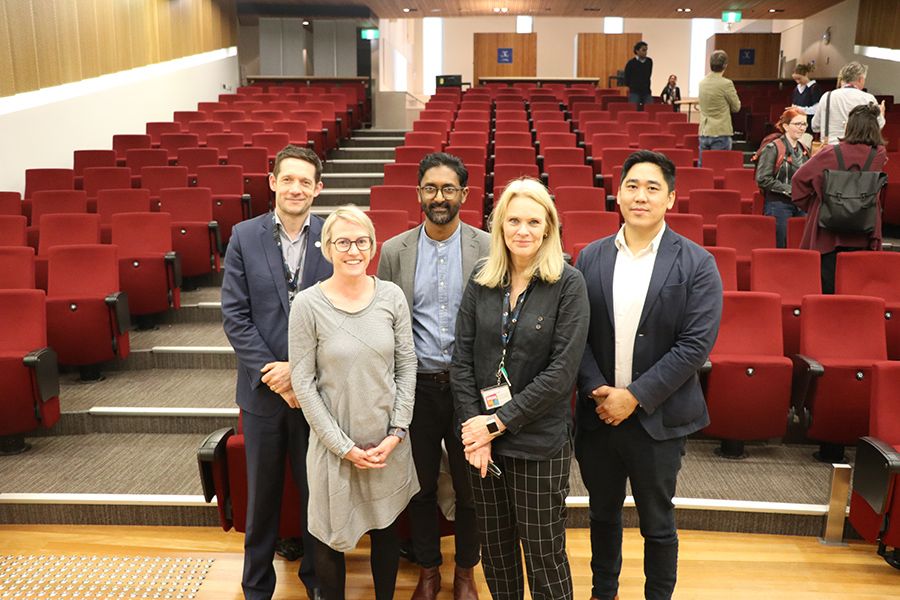
In May, Burnet helped to establish the Melbourne TB Community (MTBC) which aims to optimise science and practice relating to tuberculosis (TB), the world’s oldest and deadliest pandemic.
The MTBC is open to all involved in TB-related science and practice around Melbourne spanning research, public health, clinical care and community involvement.
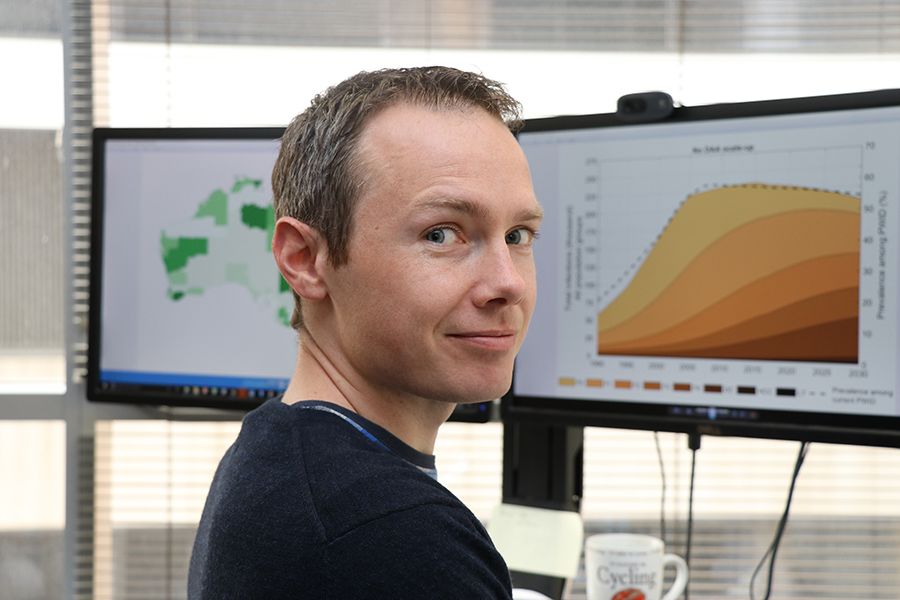
The Head of Burnet’s Modelling and Biostatistics Group, Dr Nick Scott, was awarded the Institute’s Gust-McKenzie Medal for 2021.
Dr Scott and his team continue to play a vital role in informing Australia’s COVID-19 response by modelling ways in which restrictions can be altered to reduce the social and economic burden on Australians without compromising control of the virus.
The Gust-McKenzie Medal is presented annually to an outstanding mid-career Burnet staff member in recognition of excellence in research and/or public health.
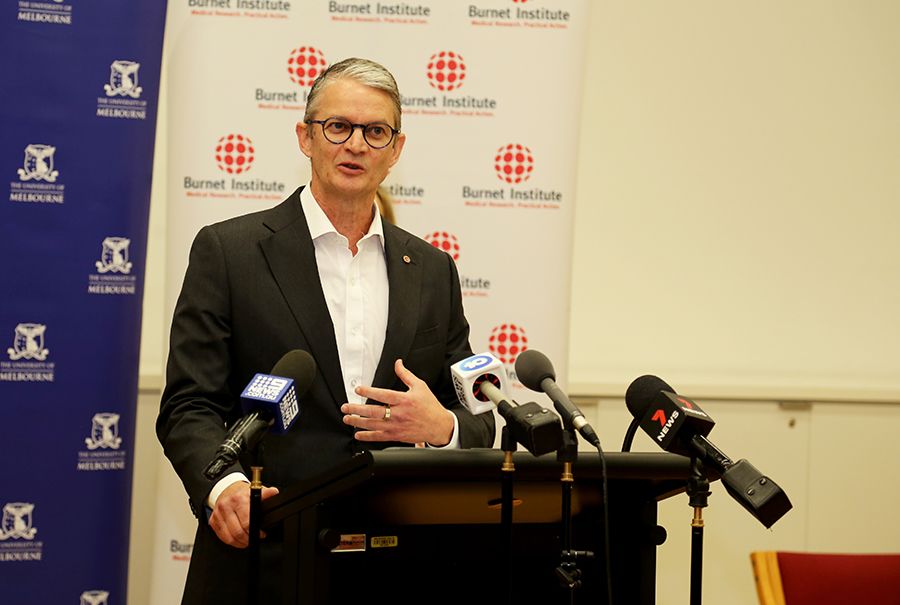
Burnet Institute welcomed the announcement of a $245 million investment from the Victorian Government to build the new Australian Institute for Infectious Disease (AIID).
To be situated in the Melbourne Biomedical Precinct, the AIID brings together a network of leading researchers, public health experts and clinicians from the University of Melbourne, Burnet Institute and Doherty Institute.
The AIID is a critical part of Victoria’s investment in future-proofing the national effort to tackle the COVID-19 pandemic and be fully prepared for any future pandemics.
“Burnet is immensely proud to join with our partners to form what will be one of the world’s great centres of excellence for infectious diseases and global health; a pandemic response powerhouse.”
June
Professor Mike Toole outlined the disparity in vaccinating the world’s population in his latest COVID-19 Global Update, explaining that globally two billion doses of vaccine had been given, but Africa was being left behind.
As of 4 June, more than 2 billion doses of vaccine had been administered, which is equivalent to 26 per cent of the world’s population. In sub-saharan Africa, however, the highest rate was around three per cent in Botswana.
Professor Toole called for the vaccine rollout to have a greater focus on countries like India and the rest of South Asia and South America.
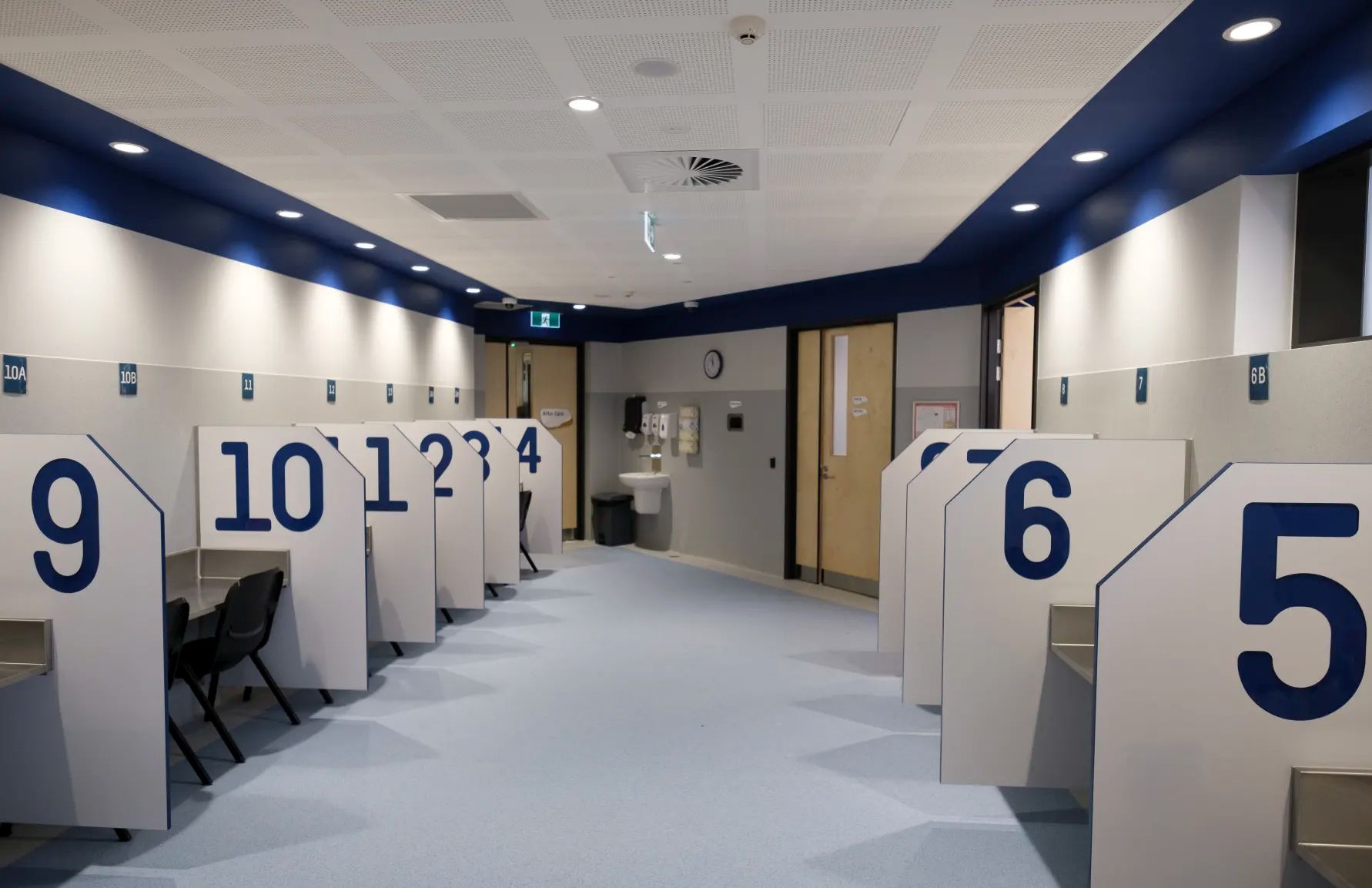
The North Richmond Medically Supervised Injecting Room (MSIR) is fulfilling its brief and playing a constructive role by attracting people who are most at risk from harm relating to their injecting drug use, and most in need of the service, according to a new Burnet study.
Published in the American Journal of Preventive Medicine, the study involved participants in Burnet’s SuperMIX study – the largest cohort study of people who inject drugs ever conducted in Australia.
Among the findings, people at heightened risk of overdose – including people who might otherwise inject alone or in public – were more likely to use the MSIR, suggesting a potentially significant benefit in preventing overdose mortality.
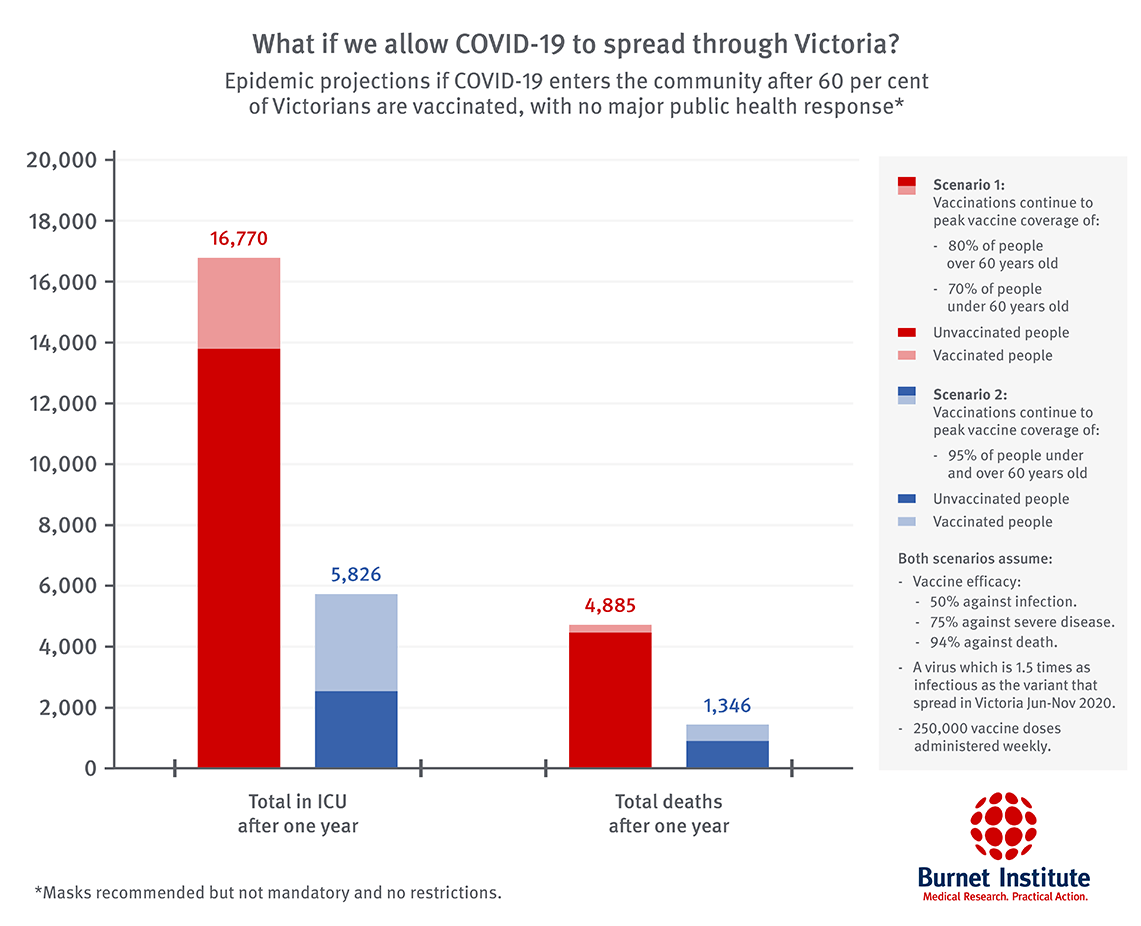
New modelling developed by Burnet Institute highlighted the need to preserve public health measures as a key line of defence against COVID-19 even with high vaccination coverage.
It estimated more than 4,800 Victorians could die from the virus within 12 months if it were to spread or ‘left to run’ without a public health response.
The COVASIM mathematical modelling also suggested Australia is unlikely to achieve herd immunity with current levels of vaccine hesitancy and the higher infectiousness of new variants.
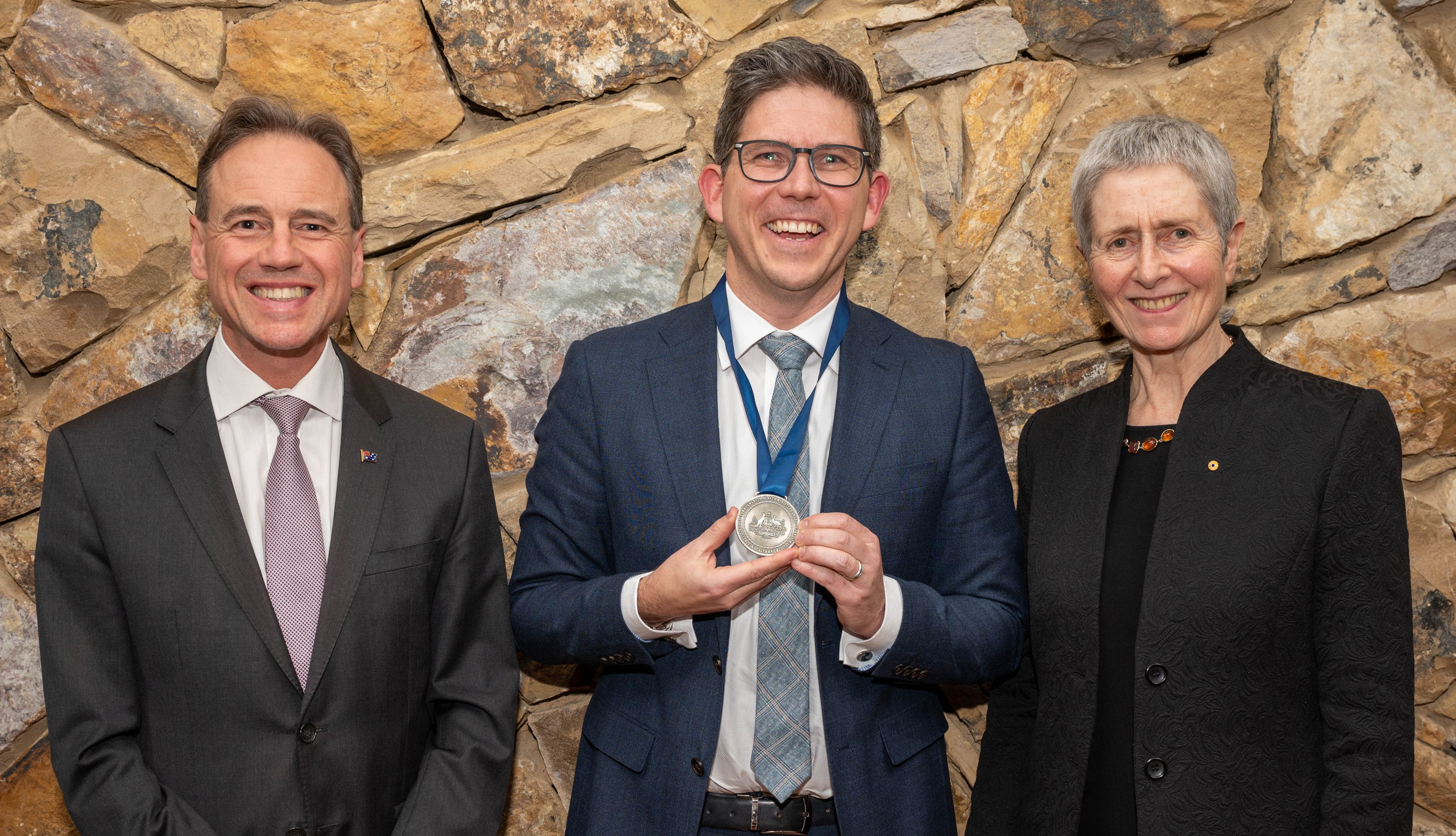
Burnet Institute Principal Research Fellow and Co-Head of the Global Women’s and Newborn’s Health Group, Associate Professor Joshua Vogel, was acknowledged for his leadership and excellence in research with two prestigious awards at the National Health and Medical Research Council (NHMRC) Research Excellence Awards.
Associate Professor Vogel was presented with the 2020 NHMRC Peter Doherty Investigator Grant Award (Emerging Leadership), and the 2021 Commonwealth Health Minister’s Award for Excellence in Health and Medical Research,
Associate Professor Vogel’s Investigator Grant will support his team’s research work to improve health outcomes of preterm newborns in low- and middle-income countries.
